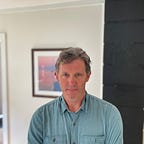How Learning Some Basic Math Will Help You Look Smarter: A true Story (sorta)
Excerpted from Look Smart: How To Appear Intelligent (When You’re Not).
Let’s face it; before mathematics, everything we knew came from religious texts. It didn’t matter if you were Mayan, Muslim, or Manichean, you had a question? Open the scriptures. What should I wear? Scriptures. Who should I marry? Scriptures. Which hand should I wipe with? How should I genuflect? You get the picture. But at some point this began to change, and there emerged a new way of approaching the world: As Roger Bacon pointed out in a cheeky, almost heretical, way in the twelfth century: “The things of this world cannot be made known without a knowledge of mathematics.” Scribes everywhere put down their quills, rubbed their inky hands on their hair shirts, and said “Wait, what?” (Rather like Baby Boomers do today when Millennials point out that they can watch TV shows on their phones).
But it wasn’t just one medieval philosopher who got that math was important to looking smart. I asked my brainy friend Jeff about what looks intelligent, and one of the first answers he gave, as he changed out of his scrubs, was: “Use percentages. If something is common, use a number around 85%. If something is uncommon go with near 15%.” He scratched his egg-like head, and added, sounding more and more like a sage every second: “Try using small ranges with slightly unusual…
